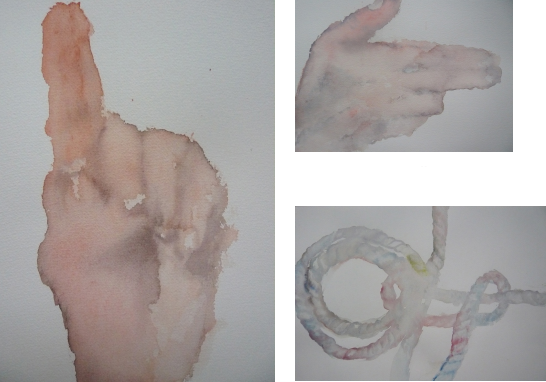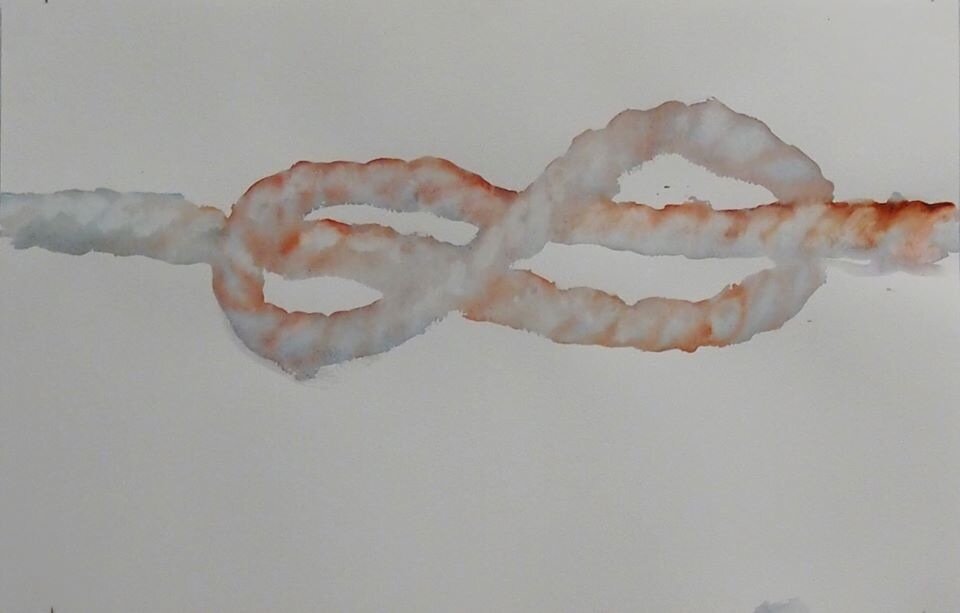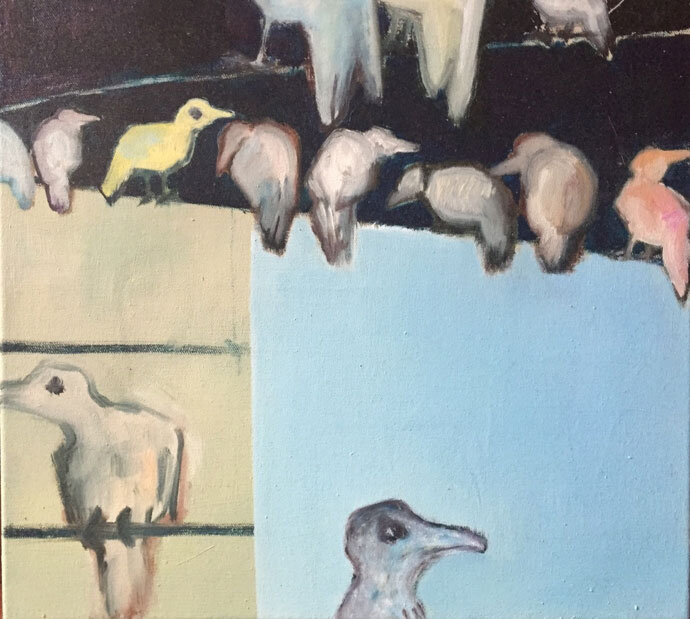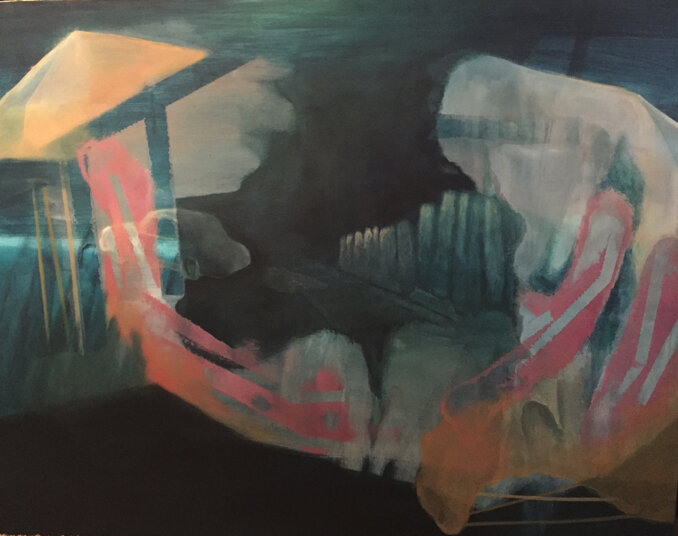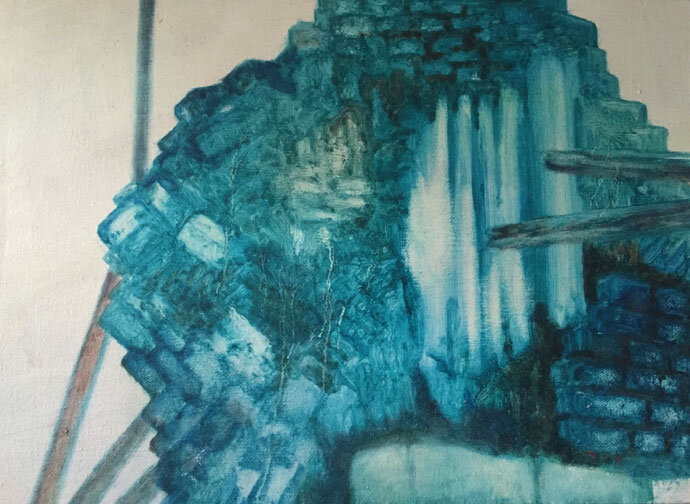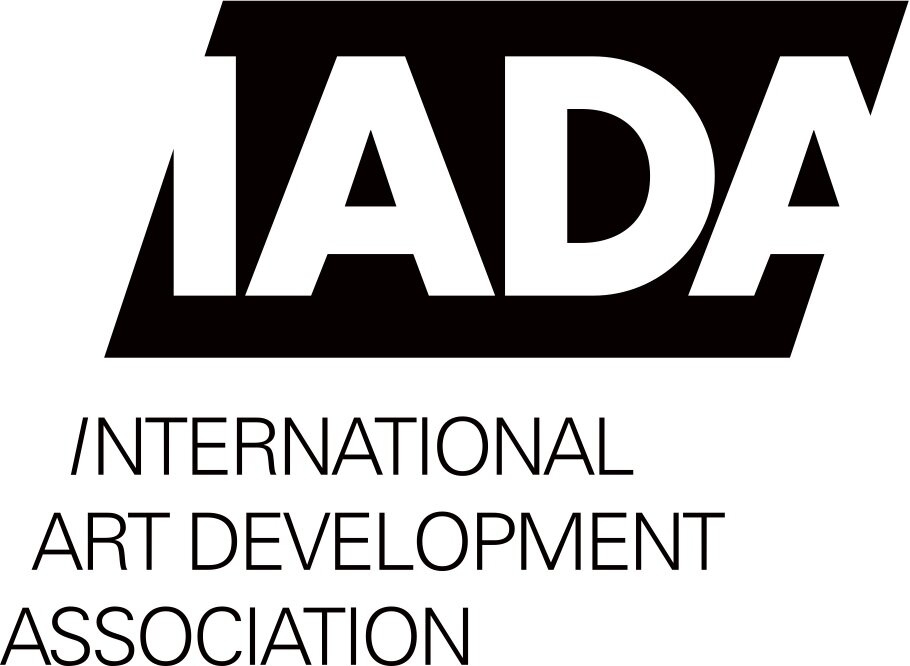KAMILA GABDULLINA
Born in 1986 (Almaty, Kazakhstan)
Lives and works in Paris (France)
Kamilla Gabdullina leads at two levels, a research on the picturality of conflict. On one hand, she experiences the act of painting as a struggle with the canvas, the result of forceful dialogue with its failures, its hitches, its losses and its ceaseless alterations. Giving free rein to the imagination, these visceral paintings mean nothing, they are simply the expression of what a psychic and aesthetic conflict can produce. On the other hand, the conflict is treated as the subject of the painting, putting together a new set of works. The artist conceives then stages situations of social violence, relying in particular on the work of René Girard and the drift of "mimetic desire." Kamilla Gabdullina "executes" her paintings in the strongest sense of the term, meaning both to put to death and carry out a plan. This ambiguity also characterizes the tone witch it uses : the absurd poetry of the first paintings contrast stongly with the crudeness and the frontality of seconds, leaving nobody indifferent. Between horror and fascination, the spectator ends by experiencing the conflict between the sensations, becoming struggle between the ideas.
The knot is one of privileged figures of the conflict. Kamilla Gabdullina repeats this theme in a serie of watercolors. False knot, winding, networks and clusters of strings give shape to the idea of the inextricable. Symbols of social relationships, these ropes sometimes refer to the strong links between the human beings (brotherhood, solidarity, meeting), sometimes to the point of inevitable friction they generate (rivalry, disagreement, war). The interpretation of knots is therefore double, they can be traps or problems, as bridges and ties. The use of watercolor emphasizes the contrasting effect. The strength of the rope opposes here the fragility of the drawing. The dilution of the paint reveals blanks, blurred spaces, holes. Colors, soft and ruddy, are equally ambivalent, installing a trouble in perception, an uncertainty in the look.




